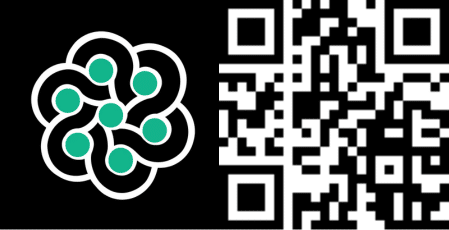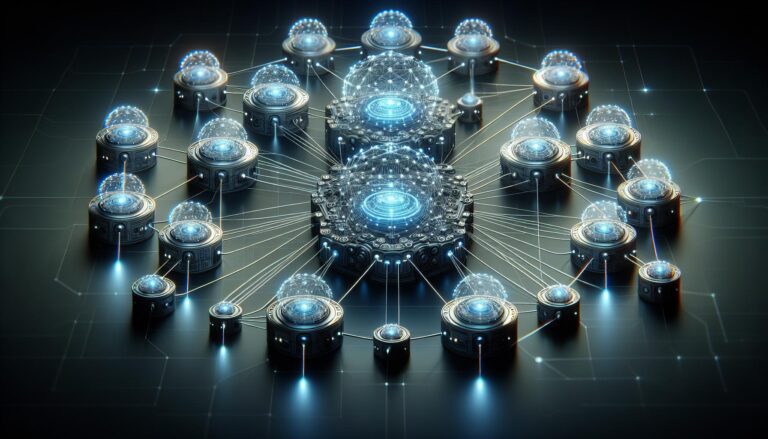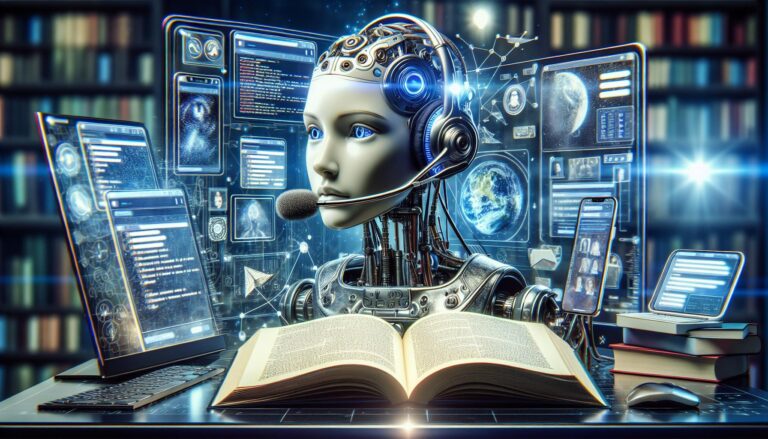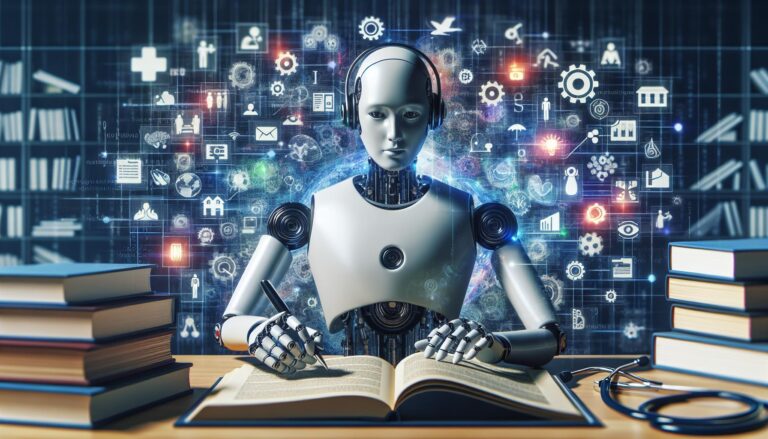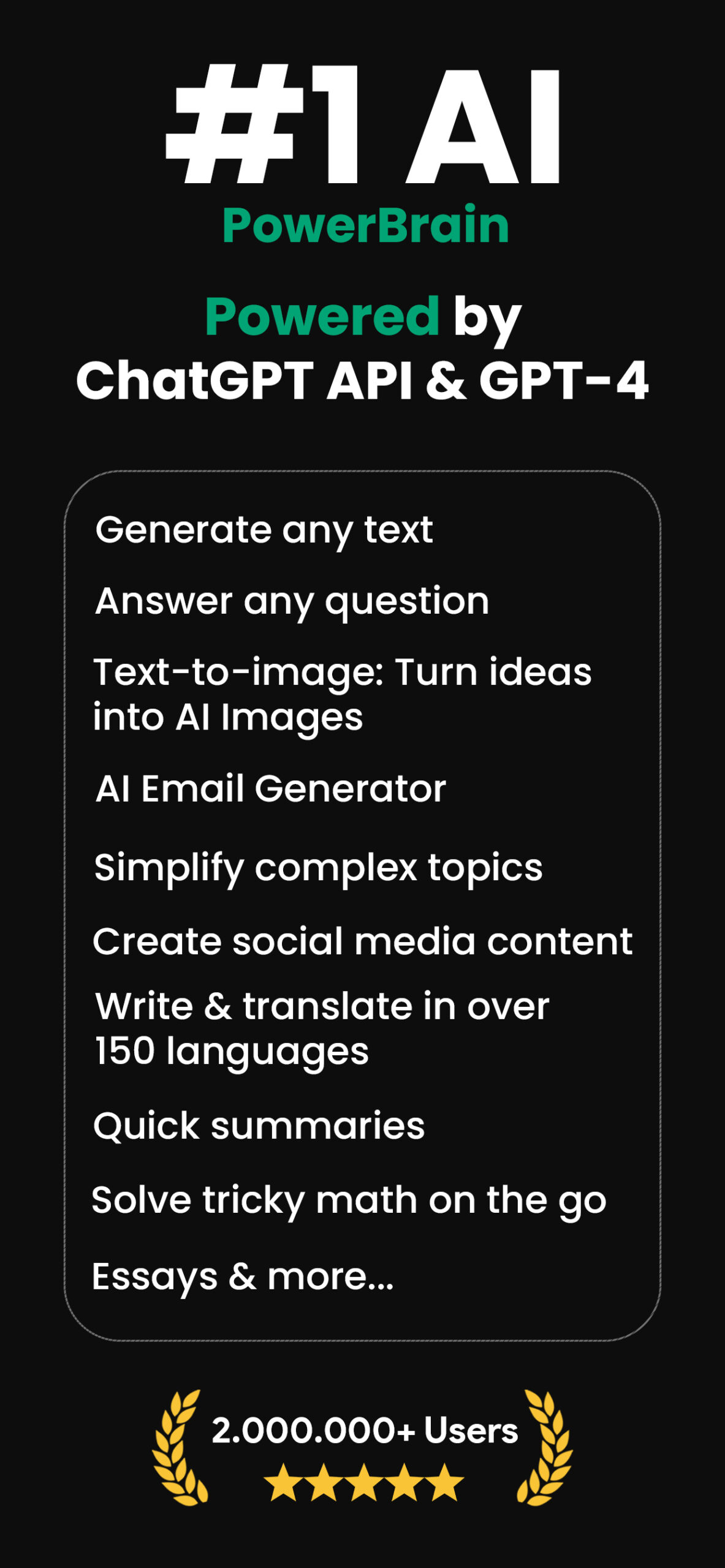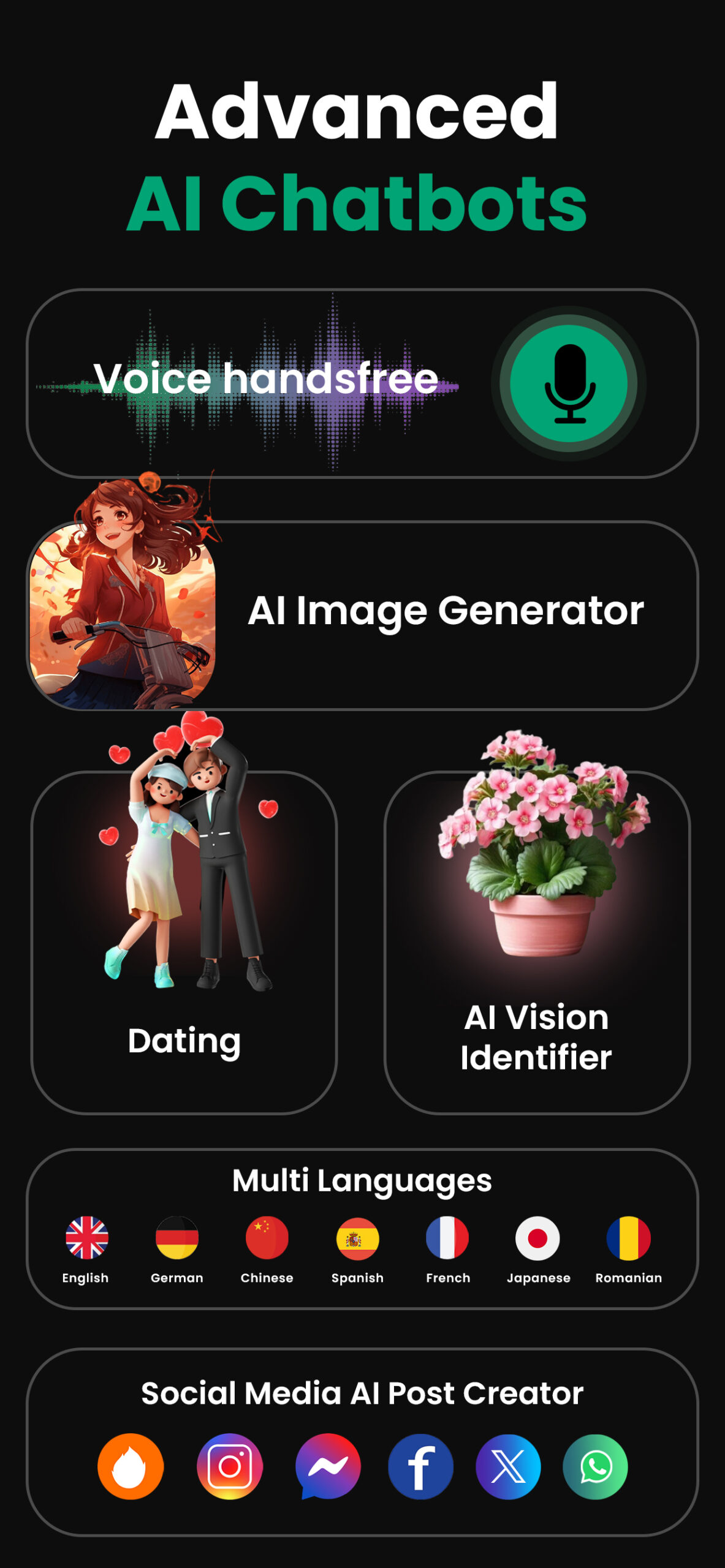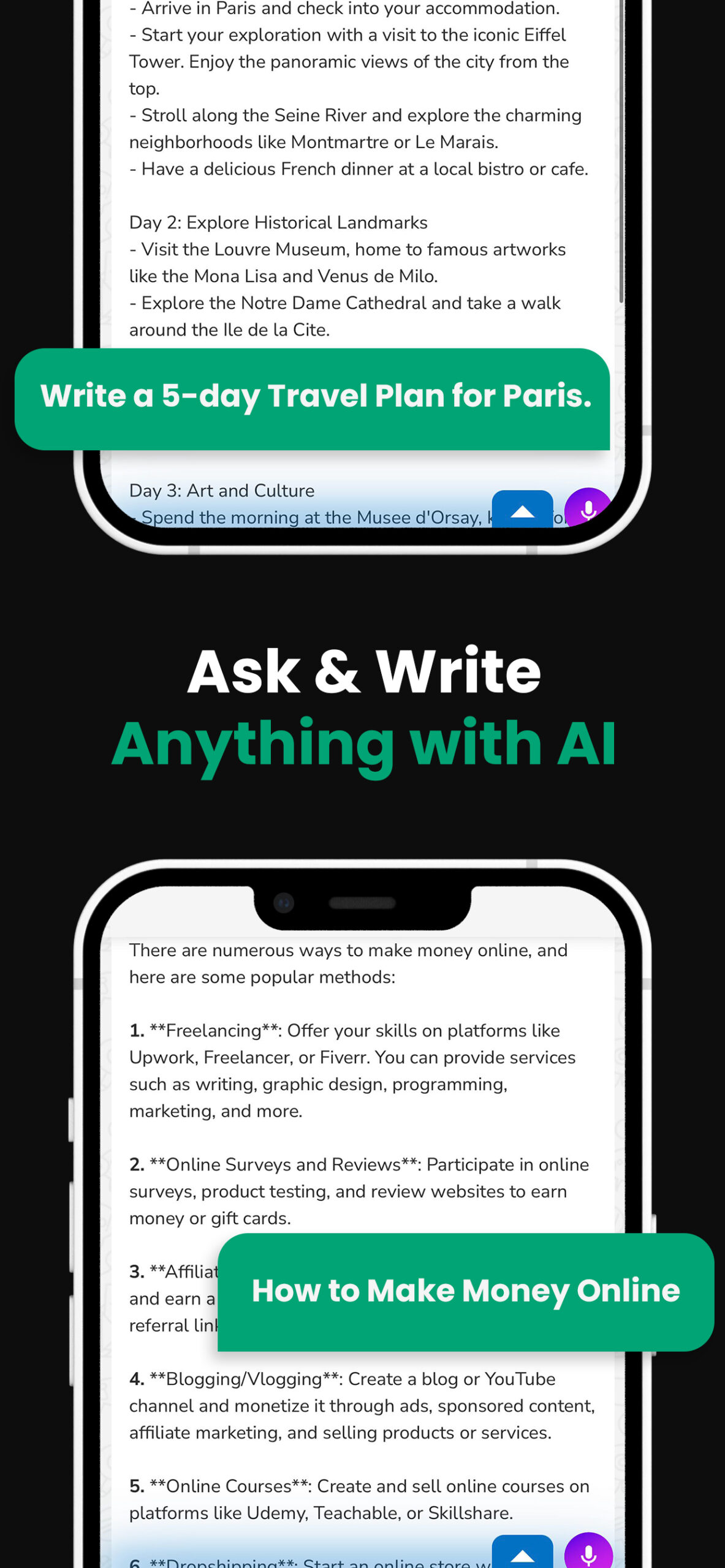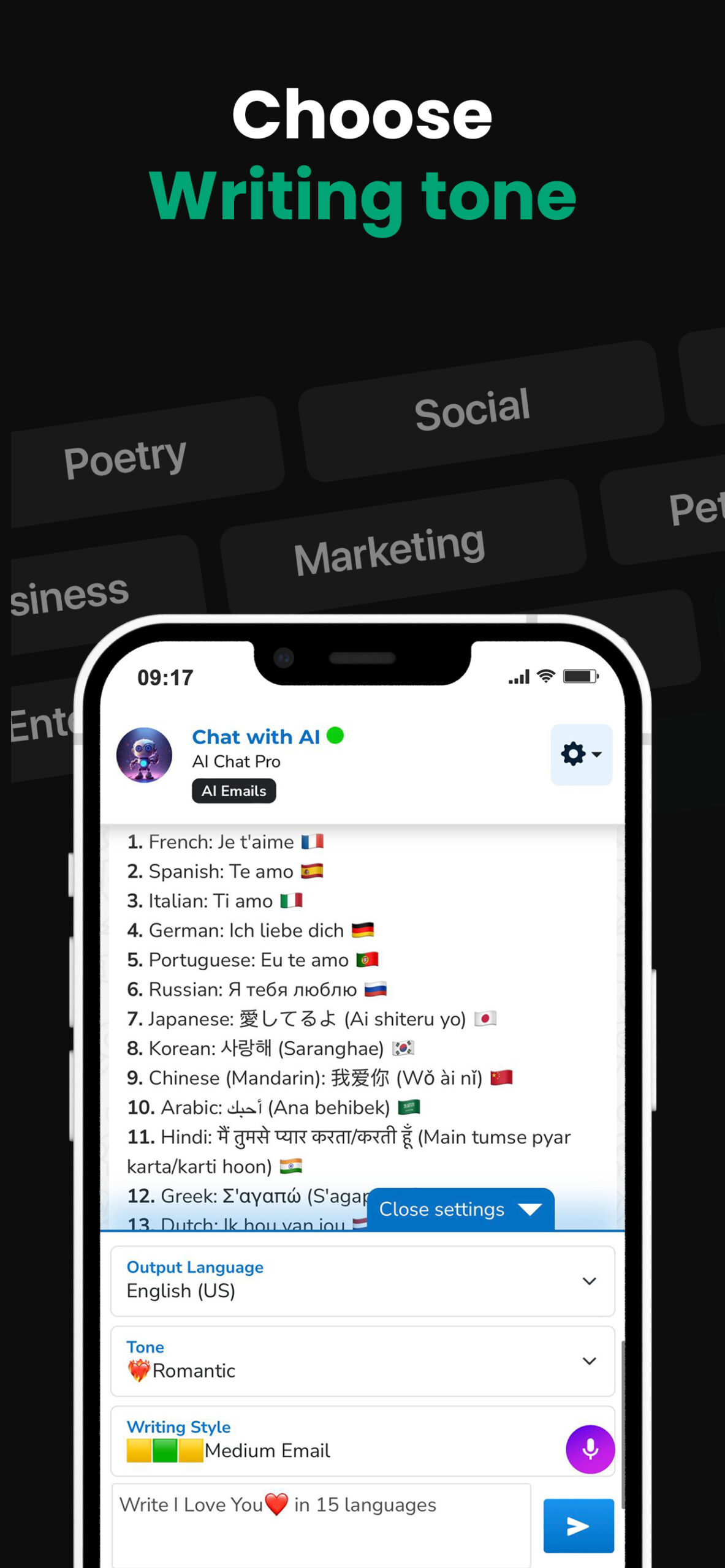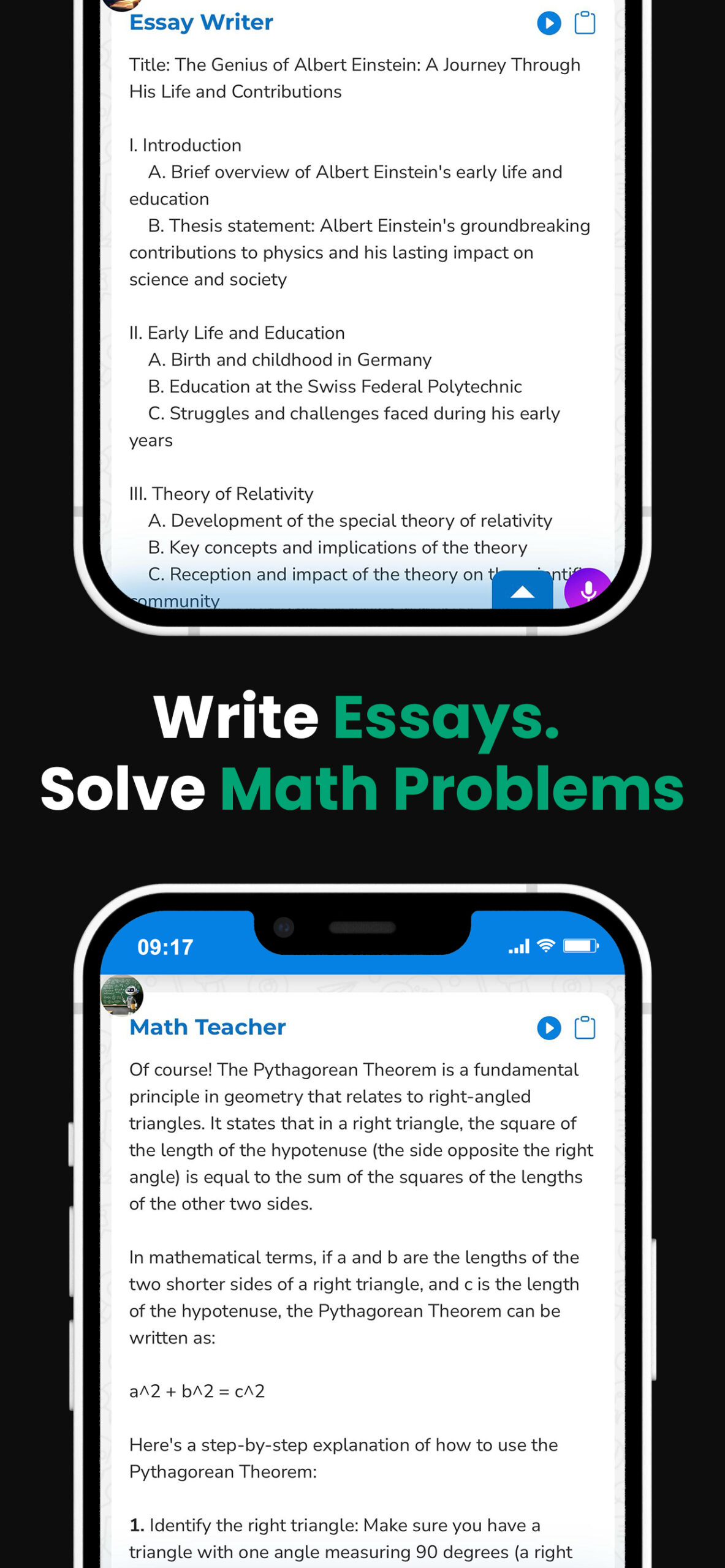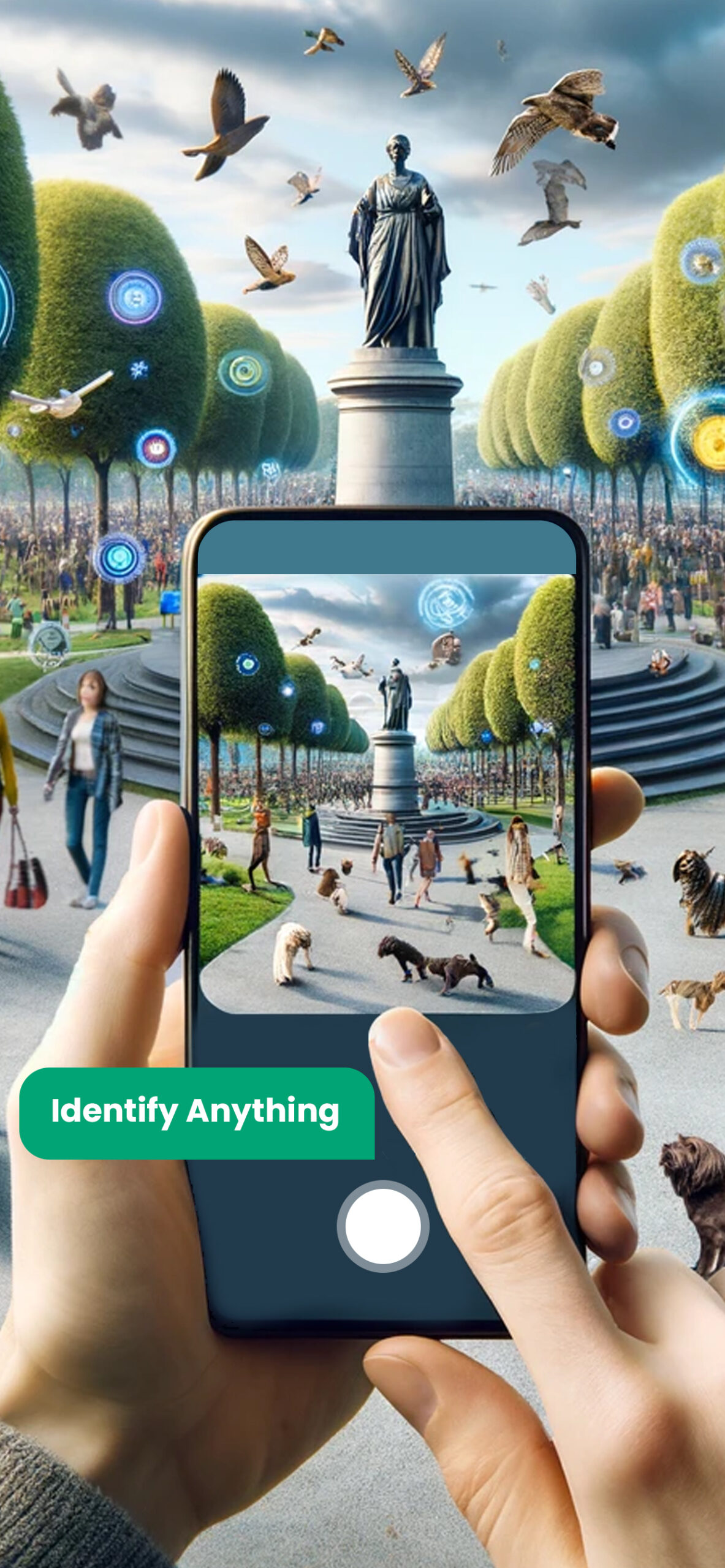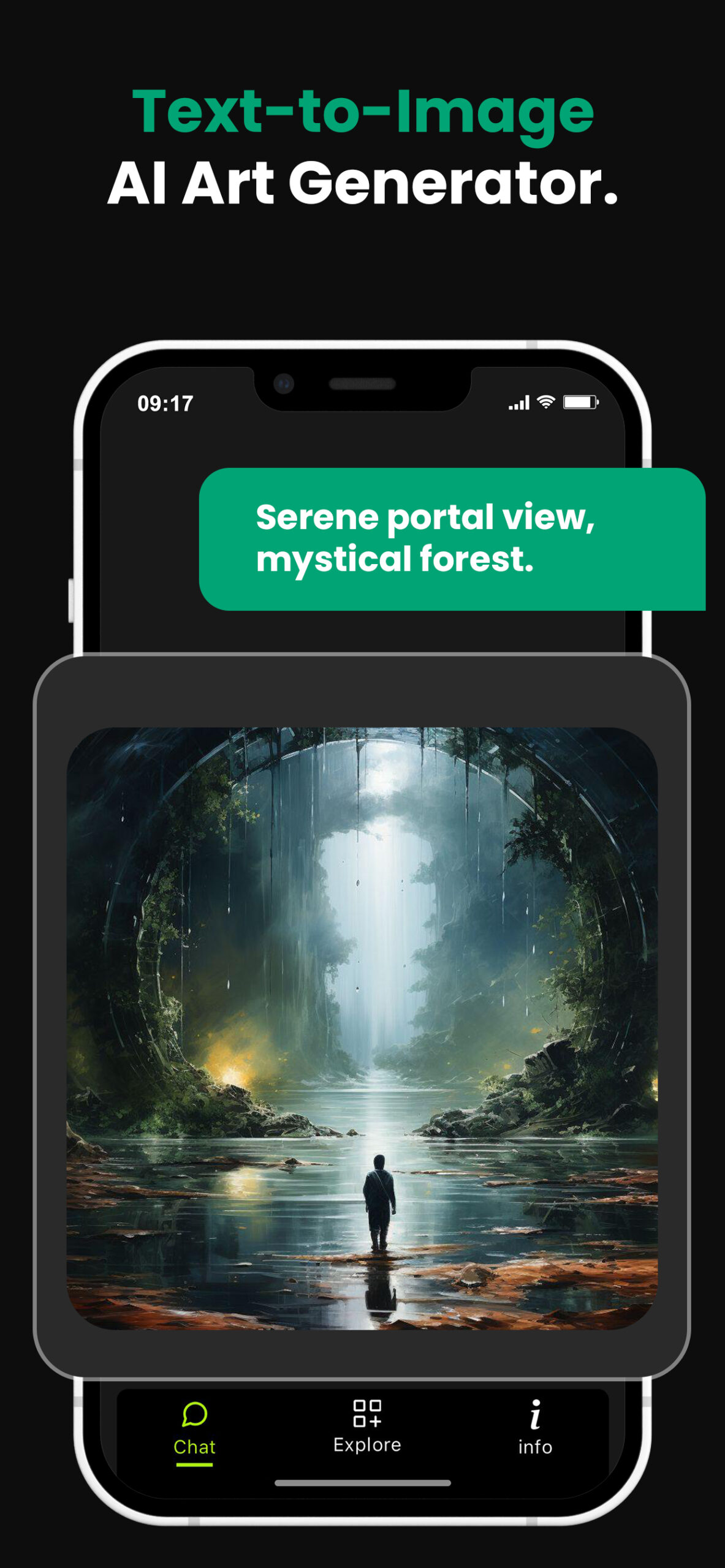Exploring Ethics: Is Using GPT-3 Chatbots a Form of Plagiarism?
As an experienced blogger, I’ve seen a lot of changes in the digital landscape. One of the most intriguing developments is the rise of AI chatbots like GPT-3. It’s a game-changer, but it raises some interesting questions. Is it plagiarism to use Chat GPT?
It’s a grey area that’s causing quite a stir. After all, if you’re using a bot to generate content, who owns that content? It’s a complex issue and one that’s worth exploring in depth. So, let’s dive in and untangle this web of AI, copyright, and plagiarism.
Remember, plagiarism isn’t just about copying and pasting someone else’s work. It’s about using someone else’s ideas as your own. So, does using Chat GPT fall under this definition? Let’s find out.
PowerBrain AI Chat App powered by ChatGPT & GPT-4
Download iOS: AI Chat
Download Android: AI Chat
Read more on our post about ChatGPT Apps & AI Chat App
Key Takeaways
- The use of AI chatbots like GPT-3 in content creation blurs the conventional boundaries of authorship and originality, necessitating an examination of our definitions of plagiarism.
- Plagiarism traditionally involves using someone else’s work without proper citation or acknowledgment, a definition that may not fully encapsulate the role of AI in creating content.
- AI tools like Chat GPT generate new content based on vast datasets they’ve been fed, raising questions about originality and copyright ownership.
- The legal landscape surrounding the use of AI for content generation is complex, contentious, and largely unexplored. Current copyright laws may not fully address the nuances brought about by technologies like GPT-3.
- Ethically, AI-generated content presents its challenges. Though most of the content created by AI chatbots like GPT-3 is uniquely assembled and mostly plagiarism-free, there exist scenarios posing ethical gray areas.
- There is an urgent need for robust mechanisms to monitor and ensure the ethical use of AI systems like GPT-3, as well as inclusive dialogues on payments, plagiarism, and authorship in the age of AI.
- Read more: Does ChatGPT plagiarize – ChatGPT Sex ethics.
Exploring the Role of AI Chatbots in Content Creation
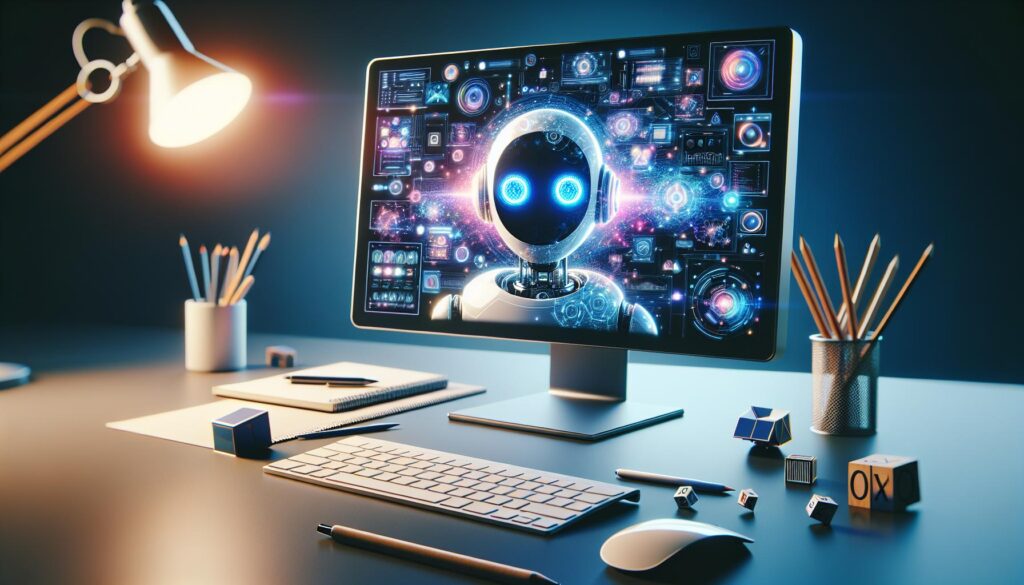
As AI technology has evolved, so too has its utility, most notably in the field of content creation. AI chatbots, such as Chat GPT, have shown remarkable adeptness at generating intelligent, engaging conversations. Their involvement in content creation, however, raises questions about authorship and originality.
Certainly, it’s not difficult to question whether it is plagiarism to use Chat GPT. How do we define authorship when the “author” is an artificial intelligence? Do we view the AI as a tool or as an independent content creator? These questions are at the heart of an ongoing debate that is likely to shape the future of content creation and copyright law.
Using AI in content creation is not as simple as it used to be. When an AI like Chat GPT generates content, it’s not merely replicating processing data, learning, and creating something entirely new. This makes the traditional definition of plagiarism – copying someone else’s work without proper attribution a tad more complex.
The issue of whether using AI chatbots falls under plagiarism is further compounded when considering the concept of authorship. Is the AI the author, or is it the human who programmed and utilized the AI? For example, when using a chat GPT plagiarism checker, it’s common to question the authenticity of the results, and whether the information generated is truly original or just a regurgitation of data, the AI has previously processed.
The impact of AI chatbots like GPT-3 on the digital landscape is profound. They’re transforming how content is produced and so, challenging traditional concepts of authorship, originality, and plagiarism. As AI and machine learning continue to evolve, the complex issues surrounding AI, copyright, and plagiarism will need to be addressed by both legal and technology experts.
Understanding Plagiarism in the Context of AI Tools like Chat GPT
A robust definition of plagiarism remains elusive, especially when we encounter innovative tools like Chat GPT. Is it plagiarism to use Chat GPT? Now, that’s a tricky question, indeed. To attempt an answer, I’ll first unpack what plagiarism means in traditional terms and then juxtapose it with the role of AI in creating content.
We’ve commonly understood plagiarism as using another’s work without proper citation or acknowledgment. This could range from presenting someone else’s writings as one’s own to lifting parts of an article, paper, or book sans any reference. Virtual breaches of this sort can elicit considerable penalties in academia and in professional circles.
However, when we turn our gaze upon AI content creators like Chat GPT, the boundaries become blurred. Chat GPT is not ‘plagiarism-free’ in the sense that humans may deem a work. The reason? Simple! It doesn’t draw insights from anywhere; it has been fed vast amounts of data. From news articles to literary texts, from social media posts to scientific papers – Chat GPT’s corpus of knowledge encompasses it all. The generation of new content by AI is based on this extensive dataset.
Yet, does that automatically make it a Chat GPT plagiarism scenario? Whether it’s plagiarism depends on how we consider and quantify originality. Chat GPT doesn’t merely regurgitate information; it creates and formulates, often in ways that showcase an understanding and processing of data. It’s more than just a chat Gpt plagiarism checker and content replicator – it’s a content generator.
Here are some important criteria one may consider:
- Does copying occur when AI uses data to create something new?
- Do creative or original ideas exist in AI-generated content?
- Does authorship belong to AI, the developers, or the data sources?
These points suggest we ought to scrutinize our traditional definitions and invite fresh discourse on plagiarism and authorship in the age of AI.
Legal Implications of Using Chat GPT for Content Generation
When it comes to using Chat GPT for content generation, we’re stepping into a gray legal area. It begs the question, “Is it plagiarism to use Chat GPT?” It’s crucial to shed light on the legal aspects of this thorny issue.
The first thing to consider here is the fundamental nature of Chat GPT itself. Given that this AI tool uses vast datasets to churn out content, it’s inherently free of plagiarism, right? Not necessarily. Plagiarism concerns arise when it reproduces text verbatim from its input, but where does the law stand on this?
If we consider traditional copyright laws, the litmus test for copyright infringement rests on two factors: 1) copying a protected work 2) resulting in a substantial similarity. Now, if Chat GPT is only creating independently derived content, it wouldn’t meet these criteria, but what about those rare instances when its output mirrors existing text it’s been trained on?
Then, there’s the “fair use” doctrine, which permits limited use of copyrighted material without prior permission. It’s primarily permitted for commentary, criticism, news reporting, and scholarly reports. Here, factors like the purpose of the use or the nature of the copyrighted work come into play. So, could we argue that the use of Chat GPT falls under the domain of fair use?
Still, copyright laws are nuanced and vary across countries, making it a complex landscape to navigate. It’s also worth noting that these laws were primarily designed before the AI era and may not fully encapsulate the dynamics brought in by technologies like Chat GPT.
As we can see, when it comes to the question “Is ChatGPT plagiarism?” there’s no black-and-white answer. What’s clear, though, is the urgent need for a fresh dialogue surrounding this issue. The evolving landscape of AI demands complex revisions of existing copyright laws and definitions of plagiarism to ensure creativity can flourish while protecting the rights of original content creators.
Ethical Considerations in Utilizing AI Chatbots like GPT-3
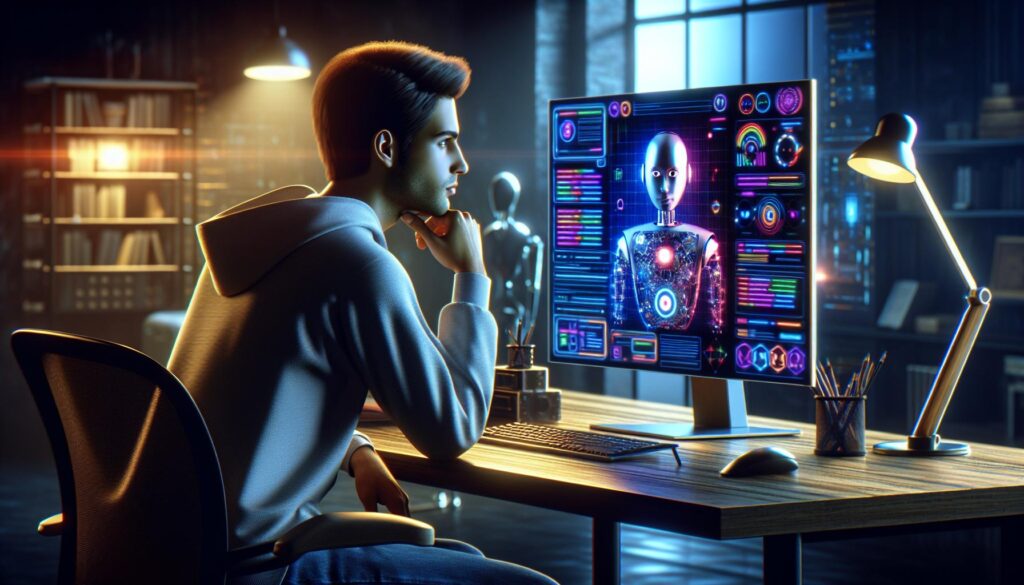
Exploring the ethical landscape that surrounds AI chatbots like GPT-3 is a compelling journey. As I dive into my analyses, I often hear the echoing question: is it plagiarism to use Chat GPT?
Let’s unpack this together.
Discussing the ethical framework of utilizing AI chatbots demands an understanding of how these tools generate content. GPT-3, to put it simply, doesn’t construct sentences out of thin air. It’s trained on a vast range of internet text. However, when it writes, the tool generates uniquely assembled sentences. It doesn’t reproducibly copy the training data. So, is Chat GPT plagiarism free? Technically, mostly yes.
Nonetheless, there’s a nuance. An AI’s capacity to learn, adapt, and generate text based on learned content becomes tricky. If the output mimics a specific piece in the training data, it’s easily construed as an ethical gray area—a probabilistic event that requires vigilant and dynamic scrutiny.
Furthermore, what about plagiarism checkers for AI-generated content? Chat GPT Plagiarism checker – sounds like a futuristic need, doesn’t it? As technology evolves, so should our tools to monitor and manage the same. Hence, there’s a rising need for robust mechanisms to ensure the ethical use of powerful AI systems like GPT3 and maybe, plagiarism checkers specifically designed for foAI-developed content.
In essence, GPT-3, like many AI systems, offers noteworthy potential in creative content generation. However, it’s imperative to understand the nuances and ethical considerations associated with their use. We find ourselves delving deep into this unexplored world, swimming against the current tide of traditional copyright policies and their limitations in safeguarding original content in an AI-infused world.
The dialogue around ethics, plagiarism, and AI chatbots is just beginning. We are merely scratching the surface of this complex paradigm. Ethical considerations aren’t just an afterthought. They are at the forefront of this exciting yet challenging journey towards responsibly harvesting AI’s potential. Who knows what the future holds? For now, we sail on.
Conclusion
The debate about AI-generated content and plagiarism isn’t black and white. It’s a complex issue that needs careful navigation. While GPT-3 creates unique content, we must stay vigilant about the lines it may blur, particularly if its output mirrors its training data. It’s clear now that we need plagiarism detectors designed for AI content. It’s also crucial to use and monitor these powerful AI systems ethically. As we continue to push the boundaries with AI chatbots, we’re reshaping the traditional understanding of copyright laws. This evolution calls for responsibility and awareness in our approach. The dialogue on ethics, plagiarism, and AI is far from over. It’s a fascinating journey, and I’m eager to see where it leads us next.
1. Does using AI chatbots like GPT-3 considered plagiarism?
While AI chatbots like GPT-3 generate unique content, instances may occur where the output closely resembles the training data. Although this isn’t traditional plagiarism, it raises ethical considerations that are currently being navigated within the context of copyright laws.
2. How unique is the content generated by AI tools?
The content generated by AI tools is unique in the sense that it transforms input data into new sequences. However, how similar the output is to specific training data can vary, leading to potential ethical debates.
3. Is there a need for plagiarism checkers for AI-generated content?
Absolutely. The article emphasizes the growing need for plagiarism checkers designed specifically for AI-generated content to ensure fair use and adherence to ethical practices.
4. Are AI systems like GPT-3 being monitored?
Monitoring of AI systems is essential to prevent misuse and maintain ethical standards. While systems like GPT-3 are powerful, their use should be regulated to avoid infringement on copyright laws and other potential ethical violations.
5. What is the future perspective on AI-generated content in regard to ethics and plagiarism?
The dialogue on the ethical considerations and plagiarism surrounding AI-generated content is evolving. It’s crucial to navigate this complex paradigm responsibly as the capabilities of these tools continue to advance and become more widely used.
